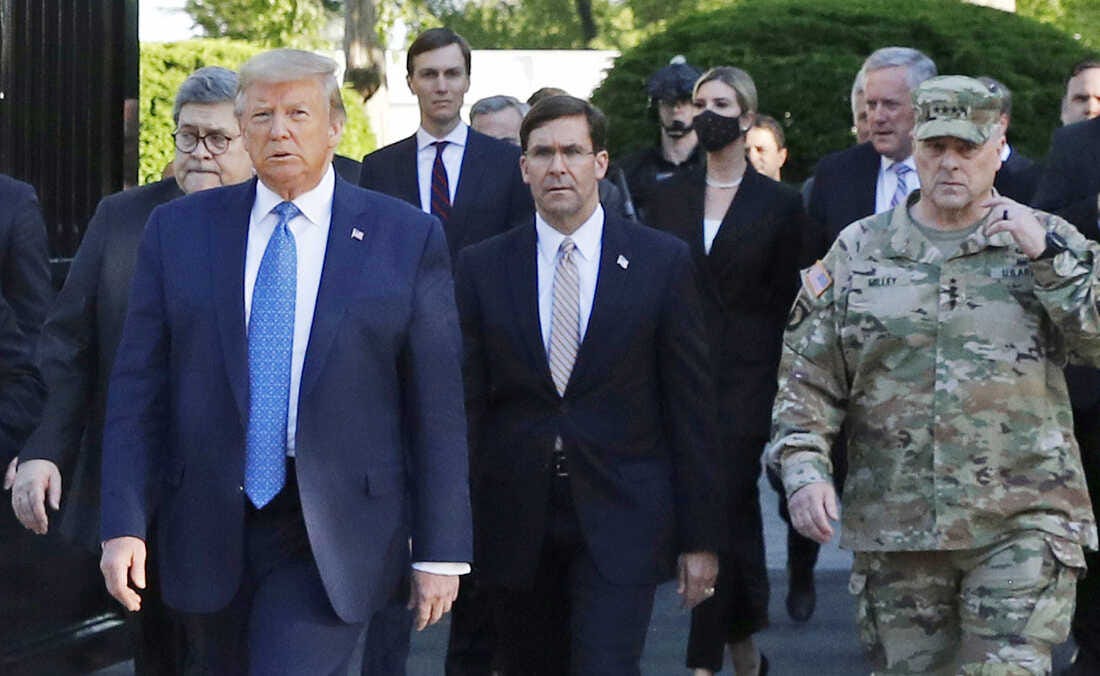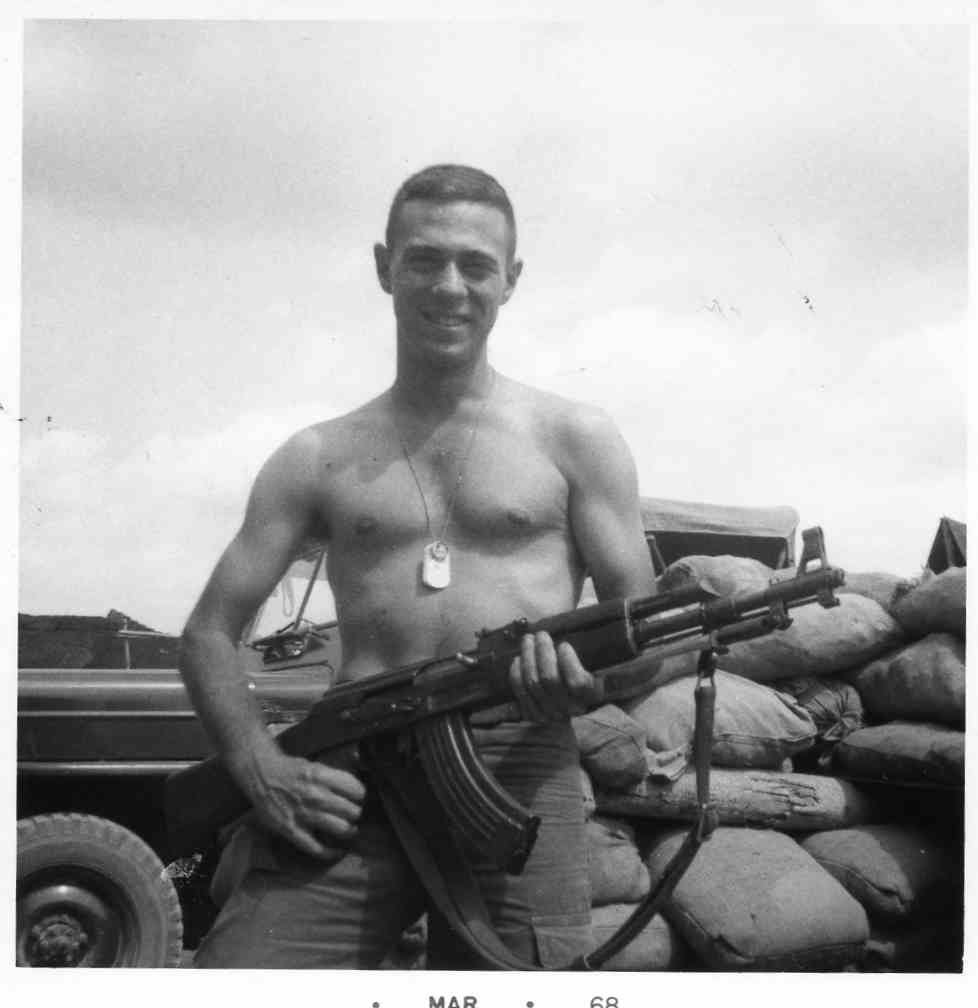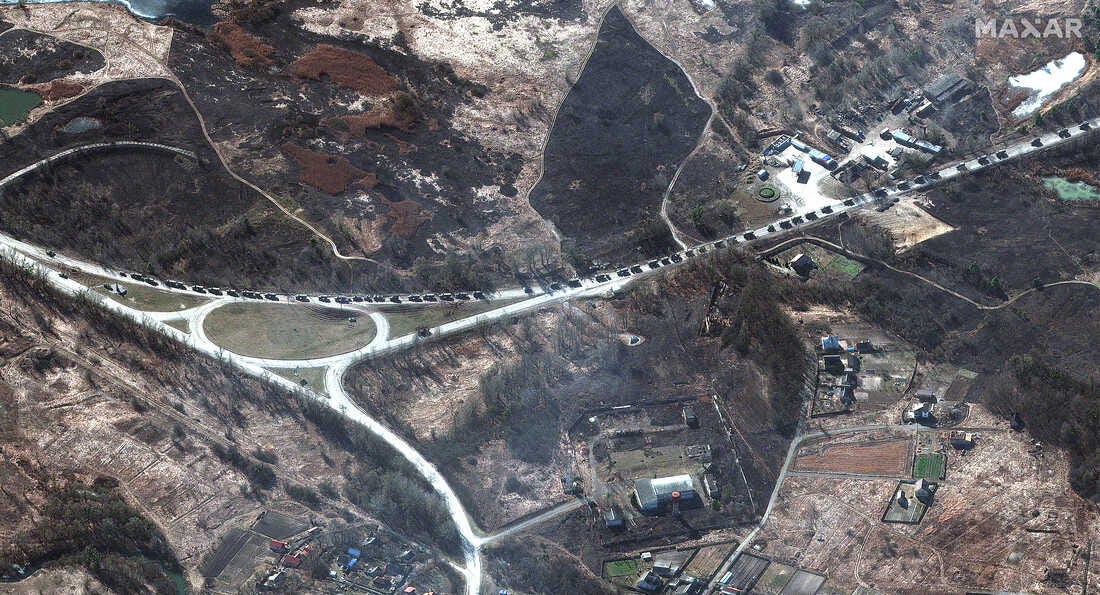Why Putin Is Losing in Ukraine
Retired Colonel Jack Jacobs on how the Russians suck tactically, but could still prevail.
I first met retired Army Colonel (Ret.) Jack Jacobs more than a dozen years ago in the green room at MSNBC, where we are both long-time analysts. He was on for a segment involving some kind of news from Iraq or Afghanistan and I was there to yak about something political. We quickly became friends and — pre-COVID — saw each often both inside and outside 30 Rock. Jack, who was raised and still lives near us in New Jersey, is a talented military analyst and knows a lot about a lot of other things, too, including politics and finance (he went to Wall Street after leaving the army).
On March 9th, 1968, Jack was an army officer serving in the Mekong Delta as an adviser to the South Vietnamese army when the battalion came under heavy fire from the Viet Cong. Jack was badly wounded in the head and arms, but braved enemy fire to save 14 people, a feat of heroism that led to his receiving the Medal of Honor, which was awarded by President Nixon. Medal of Honor recipients are not supposed to return to the battlefield but Jack used subterfuge to re-up for a second tour and was eventually promoted to colonel. Today, he teaches at his alma mater, Rutgers, and at West Point. We discussed the war in Ukraine, the humiliating evacuation of Afghanistan and his own battlefield experiences.
JONATHAN ALTER:
Given your peerless knowledge of the battlefield, why are the Russians losing?
JACK JACOBS:
Several reasons. For a long time, we've been so focused on the Russians’ gross ability to inflict damage that we morphed that idea into the generalized concept that the Russians are really strong. And they are, from the standpoint of weaponry, even though a lot of their weapons are older and don't work all that well and the maintenance sucks. I think the Russians still actually believe they'll be able to prevail. And they may still be able to do that as a result of their weaponry, which includes Iranian and Chinese stuff that contains, as we now know, about 30 percent American parts.
But their tactical abilities remain poor. When we teach people how to act on the battlefield, one of our overriding principles is integration. Our infantry, tanks, artillery, missiles and delivered munitions, intelligence collection and dissemination, planning — all that is integrated. We teach these concepts to kids in basic training. Eighteen and nineteen-year-old kids understand that any battle is an integration of all of our capabilities to achieve a tactical objective. Everybody learns this from the instant he or she comes into the service. Even now the Russians don’t know how to do this. (The Chinese, by the way, have been going to the Russian school of battlefield ineptitude.) So that's the first problem the Russians have: they don't know how to tactically operate.
“From a very young age, American troops are taught the following: if we tell you that the operations plan says go here and then turn right, and you get there and turning right is tactically impossible, then turn left. Don't turn right if there's an opportunity to prevail on the battlefield by turning left. The Russians do not do that at all. Here's their operations order: you do it if you're told to do it. And you keep doing it until you're all dead. “
The second problem is their command structure. We teach young people, if you're given an order, you’ve got to put in your two cents. You're required to say “OK” or “I disagree.” If you're a commander, you want your immediate subordinates to weigh in. After all, at a battalion level, you've got captains working for you who put the operations plan together based on your generalized instructions. Then they tell you, “This is what we've worked out,” and you say, “Well, that sounds good,” or “That sounds good except for this,” or, “That sucks, go back and work on it again, and let me give you some guidance.” Subordinates have a big impact on how decisions and what decisions are made in the American armed forces.
From a very young age, American troops are taught the following: if we tell you that the operations plan says go here and then turn right, and you get there and turning right is tactically impossible, then turn left. Don't turn right if there's an opportunity to prevail on the battlefield by turning left.
The Russians do not do that at all. Here's their operations order: you do it if you're told to do it. And you keep doing it until you're all dead. So why have so many Russian general officers been killed and wounded in Ukraine? The reason is, below the level of general officer, you're not allowed to make an impromptu, tactically successful decision. You have to get a general officer up there to make a decision. So they bring these general officers forward, and they get blown up, they get shot. They don't have an officer corps that can actually operate on the battlefield because they're not permitted to.
JON:
What’s ironic is their authoritarian society is infecting institutions like the army that you would think would operate better on an authoritarian model, but actually operate better on a democratic model.
JACK JACOBS:
One reason we won the Second World War was the ability of young, relatively low-ranking people to make intelligent decisions on the battlefield when things weren't going their way. That became our doctrine, and we still teach that today, which is why we have not just a strong Noncommissioned Officer Corps but strong people at the bottom of the enlisted chain who can make ad hoc decisions. The Russians still do not understand that because their entire political structure, if not their social structure, is based on a top-down model. Somebody once said that the Russian people haven't changed in 1,000 years. Whether it's Ivan the Terrible or Catherine the Great or Vladimir Putin, whether they're Communist or not, the social and political structure is such that they don't make decisions from the bottom up.
JON:
But the Ukrainians come out of that tradition, too. So who taught the Ukrainians something different?
JACK JACOBS:
We did. We took advantage of a rebellion against what had been taking place in the Soviet Union for a long time. I mean, they didn't decide overnight that they didn't like being part of the Russian Federation. That goes back a long, long time. They hung on because of the Second World War, but they didn't want to be like Russia. I forget who it was who commented that Russians are just children. It's a bit much, but the observation is cogent in this regard: they just spin around and wait to be told what to do because that's their tradition, and that spilled over into their ineptitude on the battlefield.
And their intelligence sucks. If you think you've got overwhelming combat power, and you think that is the sine qua non of battlefield success, then nothing else matters to you. Logistics don't matter. Intelligence doesn't matter. You just try to steamroll over everything. But we already know from our own experience that's not the case. You saw the negative result in Kiev. They put a 40-kilometer-long trail of vehicles on a single road leading into Kiev. Why would you do this? They couldn't go off the road because it was all muddy and they got bogged down. We would never do something like that.
JON:
But what we did do was go up against nationalists in Vietnam, as the Russians did in Afghanistan. Isn't yet another reason the Russians are losing the same reason that we lost in Vietnam? We were invading somebody else's country. And you're always going to be at a disadvantage if you try to maintain an occupation where the people aren't on your side.
JACK JACOBS:
No doubt about that — you're always fighting an uphill battle. There's another reason for Russian failure that also had an impact on American failure in Vietnam, and that is corruption. Our ally in Vietnam was horribly corrupt. Our equipment didn't work at least partially because people were siphoning money off. There’s huge corruption in the Russian military and the Russian government. And the people who surround Putin are basically yes-men. Both of the guys at the top of the military food chain have been in the same job for thirteen years. It's a cabal: they all owe their status and their success to Putin and his henchmen. And if Putin has got spinach between his teeth, they’re not going to tell him.
JON:
What do you think is the medium-term outlook over the next year?
JACK JACOBS:
Well, there are two ways to look at this. One is tactically/strategically, and the other is politically. I think the America First guys among the Republicans are going to make it increasingly difficult to pass legislation to support the Ukrainians.
JON:
Besides Rand Paul, there's very little pro-Putin sentiment in the US Senate. So I'm not actually really worried at this point about them [discontinuing support]. And I think the American public is behind Ukraine.
JACK JACOBS:
I hope you're right, but everything's got to go right for that to be correct. H. L. Mencken, who was a creep, said something cogent: “Nobody ever went broke underestimating the intelligence of the American people.” A second problem revolves around our allies. We’ve had to twist their arms to get them to this point. And they're in much worse economic shape than we are by a longshot. There are strikes in the UK. The Germans and the French don't want to do anything. The Russians will continue to bombard the shit out of Ukraine and annihilate its infrastructure and electrical grid. They're well on their way to doing that because it's so cheap to do these things and they don't have to expend any lives to do it.
JON:
You don't think that the Patriot missiles can protect Ukrainian infrastructure?
JACK JACOBS:
These are precision-guided [Russian] munitions. It only takes one to knock out a major substation. If the Russians launch 100, all it takes is half a dozen that are well-targeted and Ukraine's got a real big problem. So they spend all their time trying to get the electrical grid back up. Or water treatment. The Russians are banking on a cholera epidemic. Not that they're instilling fear among the Ukrainians —they can't do that. But they can wear them down. They can make their life so difficult that they wind up dying of disease before they die of explosions.
JON: That's what happened in Chechnya, right?
JACK JACOBS:
Exactly. And the longer this carries on, and the cheaper it gets to launch these things, the harder it is to take them all down. So they're banking on wearing Ukrainians down to the point where they can't take care of themselves anymore and wearing the West down so that we're not interested. There'll be a whole bunch of Lindbergh-type people in Western Europe who will come to the fore and say, “This is bullshit. We're not doing this anymore.” And they'll get support. Maybe H. L. Mencken was right about the Europeans as well. The Russians realize they can't do anything on the offensive side tactically, so they're just going to wear them down.
JON:
But isn't it quite possible that some of these demoralized Russian units, pressured on the east side of the Dnipro River, will say, “We’re going home?”
JACK JACOBS:
Of course. Most people in the Russian army are conscripts. They don't want to be there in the first place. So that's what the Ukrainians are banking on. Where they decide to [lay on the pressure] is critical. It’s a bit like the Normandy invasion. Where is [Russian fortification] weakest? Where do they least suspect we're going to come? After the Normandy invasion, the war wasn’t over, but the Germans didn't do very well after that, partially because of what you're talking about.
JON:
Let’s talk a little about Biden and Trump. What marks do you give Joe Biden on this?
JACK JACOBS:
On the Ukrainian deal, very high marks: B+/A-. First of all, he got a great deal of support from the military establishment. They provided the kind of lobbying in Congress and with our allies that made sense and resulted in the support we have. Biden was lucky enough to be surrounded by people in their right mind who said, “We have to do this. We’ve got to pull out all the stops, and here’s why.”
“The administration learned this lesson early on: You snooze, you lose. It was a close thing early in the war. It was largely because of Russian ineptitude that the Russians failed. It wasn't because the West supported Ukraine.”
JON:
What does Biden need to do to get an A?
JACK JACOBS:
There was a long period of time when we could have done a lot and didn't. Biden bided his time talking to our allies knowing full well exactly what was going to happen. Almost all of the intelligence that the Ukrainians have comes from the West and Israel. I won’t say the Russian invasion could have been foreseen, but our response to the Ukrainians’ valor in resisting them should have happened months earlier. The administration learned this lesson early on: You snooze, you lose. It was a close thing early in the war. It was largely because of Russian ineptitude that the Russians failed. It wasn't because the West supported Ukraine.
JON:
The Ukrainians didn't have that many Javelins.
JACK JACOBS:
And we were very cautious. The administration didn’t do a very good job ginning up support in Congress for this war. They were worried about what the Russian response would be strategically if we supported the Ukrainians. We stumbled.
JON:
How about Afghanistan? How bad are the marks for Biden on Afghanistan?
JACK JACOBS:
Very bad, both for Biden and the rest of the military establishment.
JON:
What's the short answer for that? Not establishing safety corridors to the Kabul Airport?
JACK JACOBS:
We gave up Bagram [Airbase]. That was one of the ten stupidest things we ever did in military history. They knew exactly what it took to secure the route to the airfield.
JON:
But many would argue they were blindsided by the speed of the collapse, which nobody anticipated. Nobody anywhere thought that the President of Afghanistan would be such a coward and would leave so quickly.
JACK JACOBS:
We've been in Afghanistan for 20 years. It's not like we didn't know who these guys are, their strengths and their weaknesses. When you make assumptions based on what you hope will happen, you almost invariably wind up getting screwed. We knew we were dealing with corrupt, inept [people].
“We gave up Bagram [Airbase]. That was one of the ten stupidest things we ever did in military history. They knew exactly what it took to secure the route to the airfield. “
JON:
What’s your take on the chairman of the Joint Chiefs of Staff, General Mark Milley? During late 2020 and early January of 2021, he’s taking important steps to protect democracy, right?
JACK JACOBS:
I have mixed feelings. Weighing heavily on my view of him is the stupidity of walking across Lafayette Park. He had worn the uniform for forty years, but he was working for a narrow-minded self-aggrandizing jackass. And yet, in a situation in which it's clear what's happening, he acquiesced and agrees to do this. To his credit, he says, I screwed up, I shouldn't have done that. After that, he decided that he was going to be a big champion of democracy. Up to that point, I didn't have very much regard for him. He obviously has crappy judgment, but everybody can improve, and he did improve. He worked strenuously inside to make sure things didn't become worse than they could have.

JON:
Tell me the story of how you almost became Trump's first national security adviser. What was the deal there?
JACK JACOBS:
I'd met him before at various charitable events in New York City for years, casually. We never talked about anything substantive. He always had something bad to say about everybody, which was kind of amusing at the time and then became not particularly amusing. He was getting interviewed on TV about national security advisors. They proffered I can't remember whose name, and he says, “Yeah. Okay.” And then he said, “Jacobs,” he said, “Good guy. He's a good guy.” And somebody called me up. It may have been Phil [Griffin, then-president of MSNBC]. And he said, “Are you working for Trump?” And I said absolutely not. “Why is he bringing your name up?” I said, and I think this is still accurate, “I was the last guy he saw on television.” Trump only remembers stuff that happened after last Thursday. Then I got a call from somebody who said, “Are you interested?” I said, not only “No” but “Hell no. And don't ever call me again.”
“‘I was the last guy he saw on television.’ Trump only remembers stuff that happened after last Thursday. Then I got a call from somebody who said, ‘Are you interested?’ I said, not only ‘No’ but ‘Hell no. And don't ever call me again.’”
JON:
So the person who got the job of national security adviser didn't last long: Michael Flynn. Did you know him?
JACK JACOBS:
I never met him, but as far as I can tell from his public persona, he’s a horrible human being.
JON:
I want to talk about Vietnam. Years ago, you told me that you thought the only reason you survived the battle for which you received the Medal of Honor was that you were short. [Jacobs is 5’ 4”.]
JACK JACOBS:
Few people who are really tall manage to survive combat. If the enemy is firing properly, you're going to be in big trouble, which is why, when the firing begins, everybody hits the dirt. Nobody wants to be any taller than about a millimeter; everybody tries to flatten out. Luckily, most people when they fire their weapons do so indiscriminately. As a result, the majority of rifle and machine gun fire goes over your head, but everybody tries to get low and the smaller you are, the greater the chance you have of surviving. A lot of it is happenstance. [Once], a 130mm artillery round landed not far from where we were. It lifted me up, threw me to the ground. I didn't get a scratch but [another soldier] was three feet away and he was completely destroyed. I survived because I was lucky. I remember another time during my first tour. Standing on a berm, there's a tree to my right, then me, then my battalion commander on my left. Some enemy soldier with an AK 47 opens up. Two rounds hit between my feet and the next two rounds hit the battalion commander, who's shoulder to shoulder with me. It just sometimes is luck. I could have been standing where he was standing.
JON:
What shrapnel do you have in you and where is it?
JACK JACOBS:
In my head. Pieces work their way out and I still pick pieces out of my head from time to time. If it’s embedded, it’ll get encysted, but if it’s between the underlying tissue, either bone or muscle, in the skin, the body tries to reject it and it’ll come out. One piece traveled around inside my skull and came out the back.
I have no sense of taste or smell. Not since 1968. My nose knows nothing. I have a scar in my eyeball which in the proper light I can still see.
There’s a funny story I’ve got to tell you. I went back to Vietnam six or seven years ago [and met with] the enemy commander. At the time we were fighting, he was a Viet Cong district chief; when I met him, he was 83 years old. The Vietnamese government put him in a nice serge uniform with epaulets that were hard-edged and trimmed in gold and silver. He comes over and gives me a hug, and cuts my lip on his epaulet. I said to him in Vietnamese, “You wounded me again, you motherfucker!” We had two sets of translators, one from either side, who were absolutely horrified. And he throws his head back and laughs like it’s the funniest thing he’s ever heard.
JON:
Why did you want to go to Vietnam in the first place?
JACK JACOBS:
A war was on, and I was in the Army, and I was going to go fight. My father had served in the Second World War in New Guinea and the Philippines. He was studying electrical engineering at the University of Minnesota when he was dragooned into the Army. He hated the Army, got out as soon as he could after the war was over. Yet when he got to be my age all he would talk about was how proud he was about having saved the world. I was going to get in and get out, but I stayed because I really liked the people and I didn’t want to leave them. I was just going to do my bit.
JON:
My father saw a lot of action in WWII, and the last thing he wanted me to do was [to enlist].
JACK JACOBS:
My parents were horrified. My mother said, “Don’t go into the army, become a banker!” When I retired, she says, “Why’re you retiring from the Army? You have such a great career there.” You can’t satisfy anyone.
JON:
That’s growing up in a Jewish family.
Thanks, Jack.








Great piece. Thank you. If I recall properly, the Soviet military’s treatment of their WWII vets is a testament to the brutality of that system. Conduct in Afghanistan and Chechnya only further illustrates the point.
Fascinating interview. And I love the kicker. I’m not historian but I think he misspeaks on WWII. The Soviets faced far more German divisions, killed far more German soldiers, and covered far more ground than the US Army. FDR and Churchill were happy to let Stalin’s forces do the fighting and dying as long as possible. We like to think we “won” the war, and obviously D-Day et al were key to liberating Western Europe after five years of Nazi domination. But Soviet troops were barrelling to Berlin regardless.